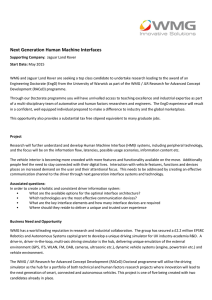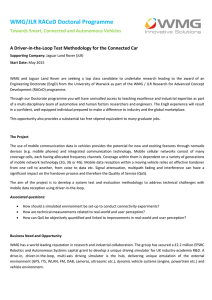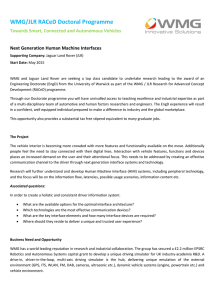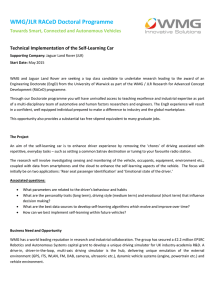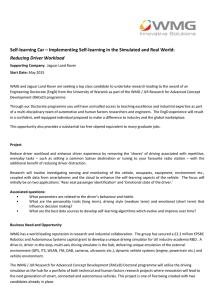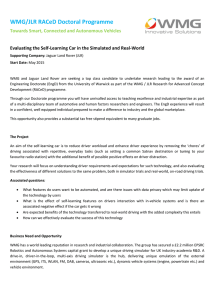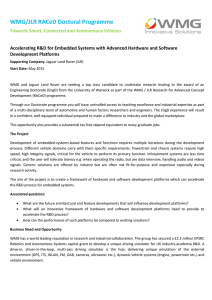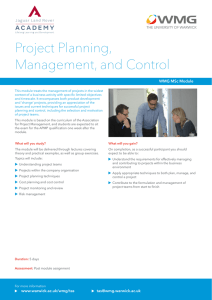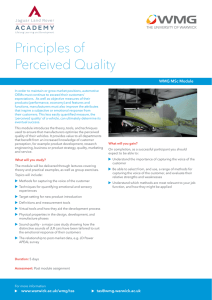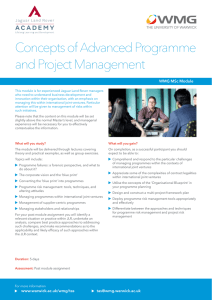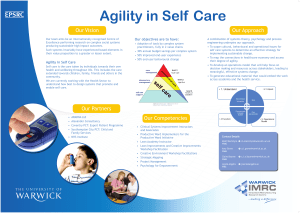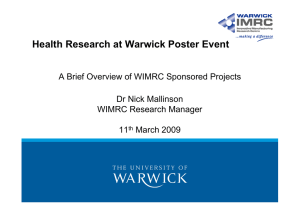Self-learning Car – Implementing Self-learning in the Simulated and Real...
advertisement
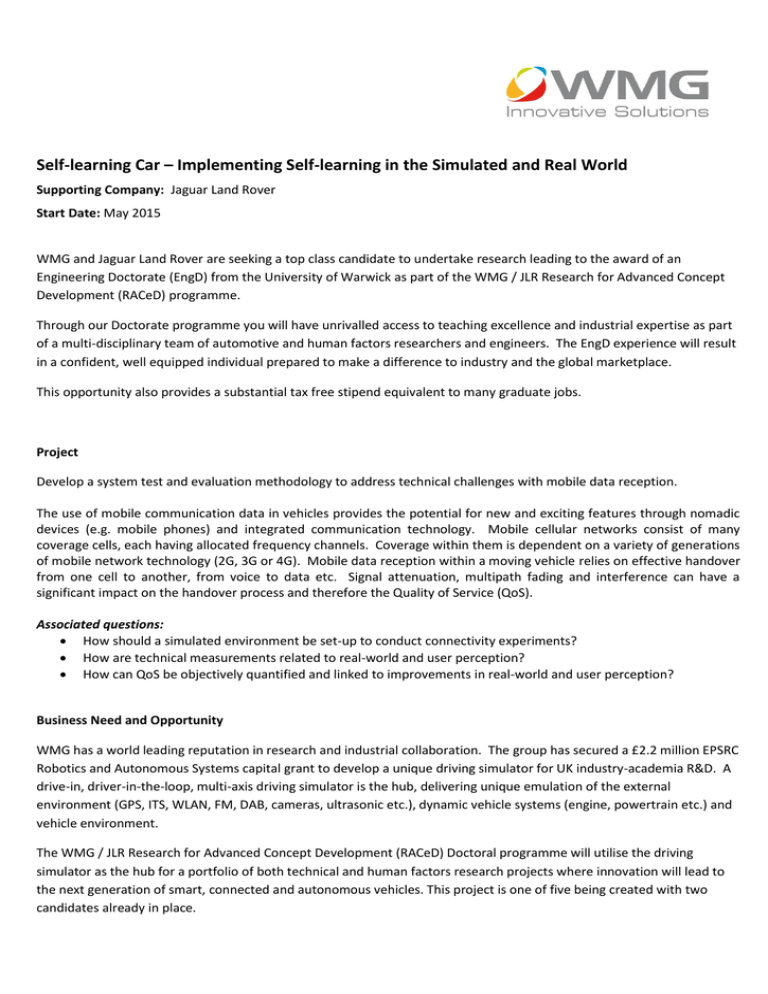
Self-learning Car – Implementing Self-learning in the Simulated and Real World Supporting Company: Jaguar Land Rover Start Date: May 2015 WMG and Jaguar Land Rover are seeking a top class candidate to undertake research leading to the award of an Engineering Doctorate (EngD) from the University of Warwick as part of the WMG / JLR Research for Advanced Concept Development (RACeD) programme. Through our Doctorate programme you will have unrivalled access to teaching excellence and industrial expertise as part of a multi-disciplinary team of automotive and human factors researchers and engineers. The EngD experience will result in a confident, well equipped individual prepared to make a difference to industry and the global marketplace. This opportunity also provides a substantial tax free stipend equivalent to many graduate jobs. Project Develop a system test and evaluation methodology to address technical challenges with mobile data reception. The use of mobile communication data in vehicles provides the potential for new and exciting features through nomadic devices (e.g. mobile phones) and integrated communication technology. Mobile cellular networks consist of many coverage cells, each having allocated frequency channels. Coverage within them is dependent on a variety of generations of mobile network technology (2G, 3G or 4G). Mobile data reception within a moving vehicle relies on effective handover from one cell to another, from voice to data etc. Signal attenuation, multipath fading and interference can have a significant impact on the handover process and therefore the Quality of Service (QoS). Associated questions: How should a simulated environment be set-up to conduct connectivity experiments? How are technical measurements related to real-world and user perception? How can QoS be objectively quantified and linked to improvements in real-world and user perception? Business Need and Opportunity WMG has a world leading reputation in research and industrial collaboration. The group has secured a £2.2 million EPSRC Robotics and Autonomous Systems capital grant to develop a unique driving simulator for UK industry-academia R&D. A drive-in, driver-in-the-loop, multi-axis driving simulator is the hub, delivering unique emulation of the external environment (GPS, ITS, WLAN, FM, DAB, cameras, ultrasonic etc.), dynamic vehicle systems (engine, powertrain etc.) and vehicle environment. The WMG / JLR Research for Advanced Concept Development (RACeD) Doctoral programme will utilise the driving simulator as the hub for a portfolio of both technical and human factors research projects where innovation will lead to the next generation of smart, connected and autonomous vehicles. This project is one of five being created with two candidates already in place. Entry Requirements Qualifications Applicants must be UK/EU residents and should have a 1st or 2.1 degree in Electrical and Electronics Engineering, Communications, Computer Science or other related science/engineering discipline. Technical Attributes: • Analyse, summarise and effectively present large data sets • Work with electronics at hardware and software level • Data fusion, signal processing and analytics • Knowledge of wireless communication systems • Modelling and simulation using simulation tools such as Matlab and NI Labview Personal Attributes: • Innovative and lateral thinking • Excellent analytical, reporting and communication skills • Self-motivated, independent and team player • Genuine enthusiasm for the subject and technology The Studentship Qualifying students receive an attractive enhanced stipend which could be tax and NI free depending on your personal circumstances. For 2015 this totals approximately £19,000 tax free per annum. The funding will also cover University tuition fees and all course fees as well as a travel allowance to attend courses. Apply Initial enquiries to Prof Paul Jennings (email: paul.jennings@warwick.ac.uk) To apply please complete our online enquiry form
